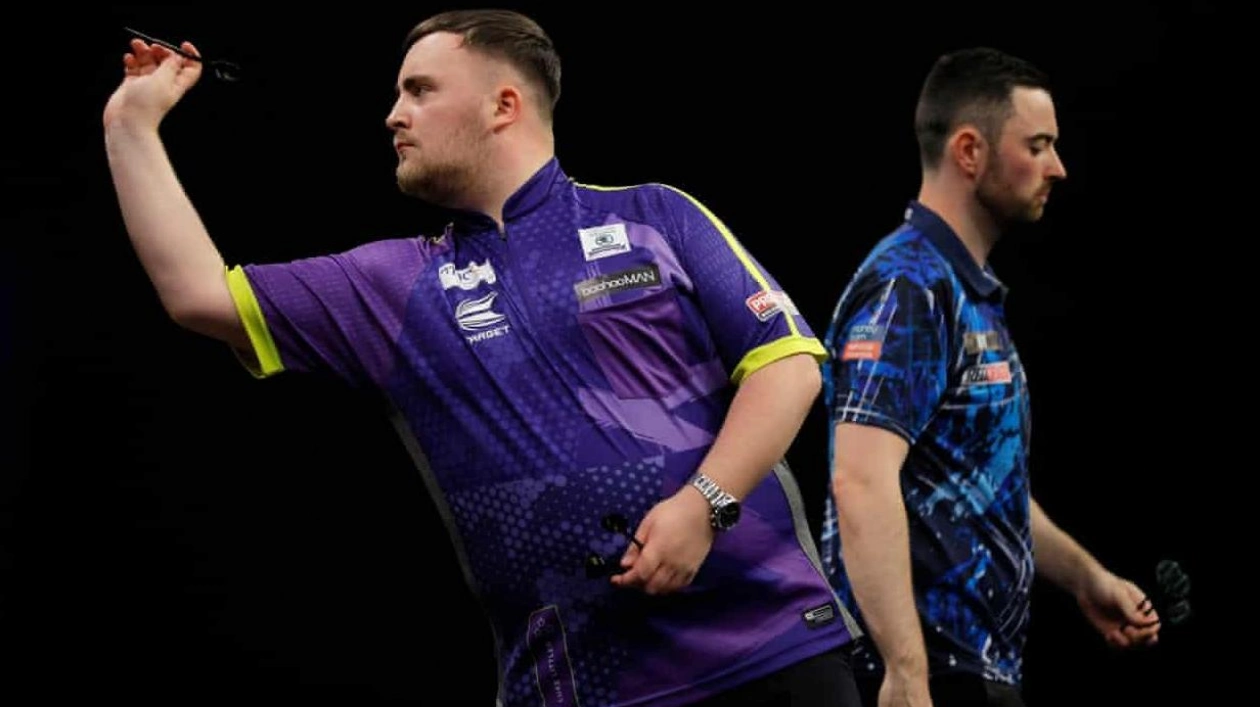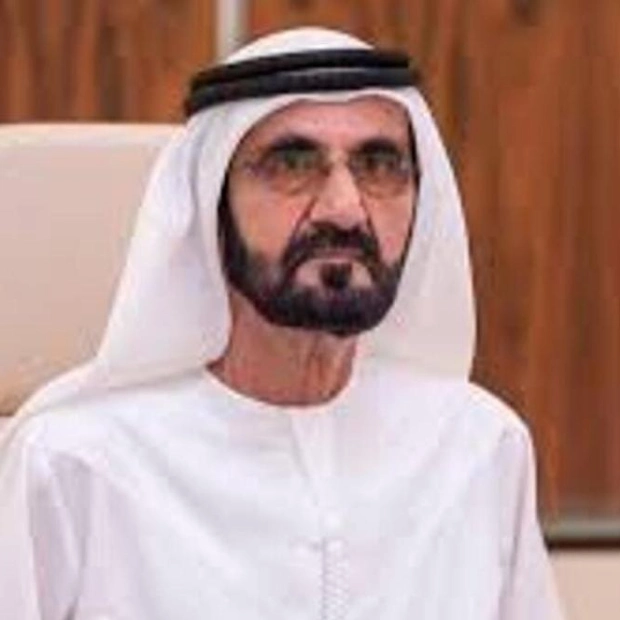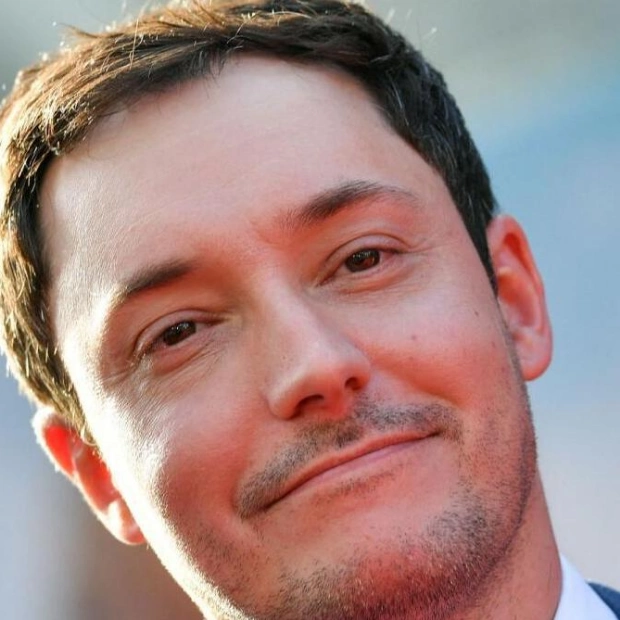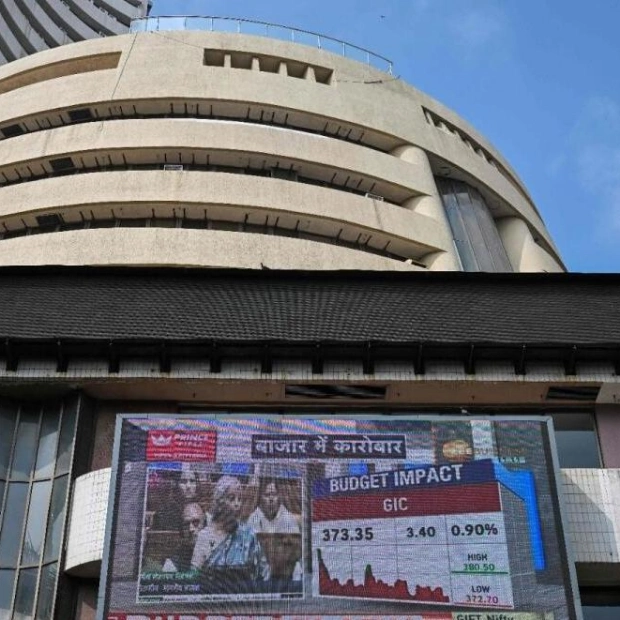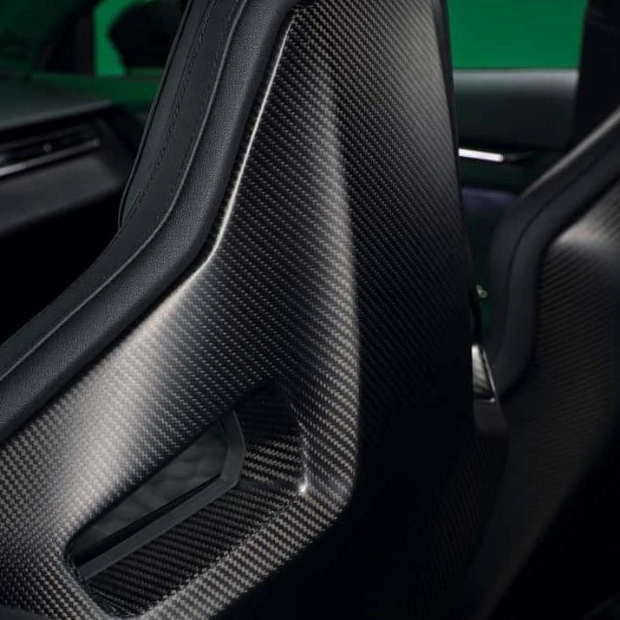There are plant burgers and arancini served on sleek dark plates. A beer mat featuring Brendan Dolan's face rests on the table. In one corner, Michael van Gerwen is being interviewed live on TalkSport by Troy Deeney. In another, an influencer named JaackMaate is filming a video for his YouTube channel. Dave Allen, the press chief at the Professional Darts Corporation, recalls the first media launch before the world championship in 2008. It featured Phil Taylor and Raymond van Barneveld, with Sid Waddell dressed as Santa Claus holding a giant novelty dartboard. A few people showed up, some photos were taken, and then everyone went home.
Now, the Sid Waddell Trophy stands illuminated on a pedestal in a London gastro-bar, while a Netflix documentary crew roams the room. Industrial-strength spotlights flood the area, and a security team patrols the venue for potential threats. "This is a sterile environment," a security guard whispers into his radio, marking the first time a darts venue has been described in such terms.
Meanwhile, a German television reporter is trying to get Luke Humphries to film a promo for his show. "If you can look at the camera and say: 'Hi, I'm Luke Humphries, and I'm playing on Sportschau.'" Humphries looks puzzled. "Sports Show?" "Sport-schau," the reporter corrects, stressing the final syllable. "Sport-shoaggh." "Sportschau." "OK." The camera starts rolling. "Hi, I'm Luke Humphries," Humphries says, "and I'm playing on Sports Show."
Humphries's unfamiliarity with German pronunciation is understandable. He barely slept after winning the Players Championship Finals in Minehead late on Sunday night and then driving overnight to London. "We arrived around 4am," he says. "Probably fell asleep around half-past five. Then the fire alarm went off."
Serious questions about form and averages are asked, along with less serious ones. What's the most recent photo on your phone? Which darts player would you least want to fight? Rank these Dutch sporting legends blindly! What matters here, and what doesn't? These are dedicated professionals, leveraging immense talent, chasing lifelong dreams and substantial sums of money. Yet, the spectacle thrives on the energy and banter of guys dressed as traffic cones ordering pitchers of beer.
In a way, darts is a sport layered in so much irony that it becomes indistinguishable from sincerity, a cultural phenomenon at the intersection of the trivial and the serious. Nobody captures this tension better than the newest star of the sport. Luke Littler has reached a level of fame where he senses his own presence, the way the room's energy shifts when he enters, the way attention instinctively focuses on him.
The Premier League and Grand Slam champion, now the world No 4 and second favorite for BBC Sports Personality of the Year, enters with a large entourage. He takes a seat in a secluded corner booth, where he will fulfill his media duties, a space specially stripped of sponsor branding. Littler cannot be filmed in front of gambling logos because he is only 17.
All year, people have asked him how he handles the attention and scrutiny, how he doesn't go mad. But what does he have to compare it to? Littler is the first darts player in history to have never had a proper job or much of a life plan. Of course, he is flesh and blood like anyone else. But on stage, he hides it better than anyone. His rivalry with Humphries has the makings of greatness: two outstanding players in the world, still exploring their limits, trying to stay ahead of a capable chasing pack.
The winner's cheque for the first PDC world championship in 1994 was £64,000. At this tournament, each nine-dart leg will see a random spectator handed a cheque for £60,000. For those watching from a distance, the pace of change feels surreal, almost disorienting. Is this trivial or serious? Perhaps, when you have enough eyes on you, the distinction no longer matters.
Source link: https://www.theguardian.com
